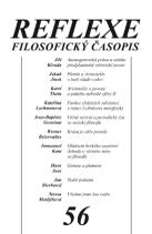The Study of Philosophy in Late-Renaissance Jewish Prague
In previous research it was common practice to reduce the story of Jewish philosophy to medieval Sepharad. Only recently has it been admitted that once we adopt a less rigid, more inclusive definition of philosophy, one that corresponds to the Renaissance view of the discipline, the history of Jewish philosophy extends also to medieval and early-modern Ashkenaz. In its first part, the present article aims at a better understanding of the social rooting of philosophical studies in 16th-century Jewish Prague. The Prague-Posen controversy (1559), the publication activities of the Prague Hebrew press and the controversies of Rabbi Judah Löw all attest, if properly analyzed, to the presence of a significant circle of students of Jewish philosophy in the city. The second part takes a closer look at, first, the attitude of three major Ashkenazi thinkers toward philosophy, and second, the function of philosophical discourse in their works. Moshe Isserles in his Torat ha-Olah (Prague 1569) interpreted the Jerusalem Temple symbolically, as reflecting both the macrocosm of the created Universe and the microcosm of man, with reference to astronomical and other scientific opinions, including those of Aristotle. With Judah Löw, an important aspect of his writings is gnoseology. Löw emphasized the inviolability of revealed tradition as formulated in the Oral Torah, representing transcendental intellect. Science, being endowed only with human reason, can only reach tentative results which may be accepted if they do not contradict religion. If acceptable, however, they do contribute to the cognition of the Creator. Finally, the work of Isaiah Horowitz allows us to formulate the key thesis of the present paper: In the Ashkenaz of the late 1500s and early 1600s, even theological discourse had become permeated by the growing interest in philosophy and in medieval philosophical terminology. Even such authors as Horowitz, who favored mystical pietism against rationality, did study Jewish philosophy, utilized philosophical arguments in the course of their works, and entered into debate with philosophical opinions.
Backlinks: Reflexe 41
